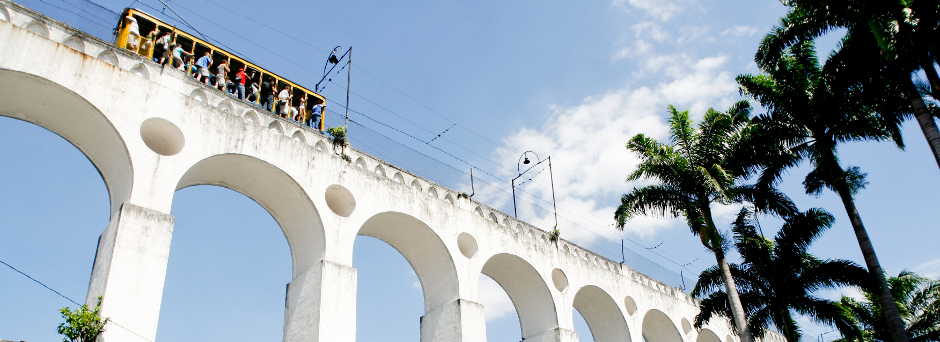William C. Carter Award
The William C. Carter Award has been presented annually since 1997 to recognize an individual who has made a significant contribution to the field of dependable computing through his or her graduate dissertation research. The award honors the late William C. Carter, a key figure in the formation and development of the field of dependable computing.
Bill Carter’s career spanned over four decades, from programming, debugging, and recovery in ENIAC, through reliability, availability and serviceability during the evolution and definition of IBM mainframes. In particular, he took great interest in the future of the field and was instrumental in promoting the work of young contributors. It was characteristic of Bill to take the initiative in reaching out to students and younger colleagues. The William C. Carter Award is intended to honor and carry on his legacy.
The award is sponsored by IEEE Technical Committee on Fault-Tolerant Computing (TC-FTC) and IFIP Working Group on Dependable Computing and Fault Tolerance (WG 10.4). To qualify, a paper based on the student’s Ph.D. dissertation must have been accepted within the main technical track of DSN 2014 as a regular paper with the student as the first author. Both current and former graduate students, no more than two years past completion of their dissertations, are eligible. All nominated submissions accepted as regular papers are evaluated by the Steering Committee of the Conference. One or two papers are selected each year to receive this award out of the hundreds submitted.
DSN is pleased to announce that the winner of the 2015 Carter Award is
Dmitrii Kuvaiskii
Technische Universität Dresden, Germany
for the following paper:
Δ-encoding: Practical Encoded Processing. Dmitrii Kuvaiski and Christof Fetzer
List of Past Winners:
• 2014: “Reliability and Security Monitoring of Virtual Machines Using Hardware Architectural Invariants”, Cuong Pham, Zachary Estrada, Phuong Cao, Zbigniew Kalbarczyk, and Ravishankar Iyer.
• 2013: “Hector: Detecting Resource-Release Omission Faults in Error-Handling Code for Systems Software,” Suman Saha, Jean-Pierre Lozi, Gael Thomas, Julia Lawall, and Gilles Muller.
• 2012:“Taming Mr. Hayes: Mitigating Signaling-Based Attacks on Smartphones,” Collin Mulliner, Steffen Liebergeld, Matthias Lange, and Jean-Pierre Seifert.
• 2011: “Modeling Stream Processing Applications for Dependability Evaluation,” Gabriela Jacques-Silva, Zbigniew Kalbarczyk, Bugra Gedik, Henrique Andrade, Kun-Lung Wu, and Ravishankar K. Iyer.
• 2010: “Scalable RFID Systems: a Privacy-Preserving Protocol with Constant-Time Identification,” Basel Alomair, Andrew Clark, Jorge Cuellar and Radha Poovendran.
• 2009: “Vulnerability & Attack Injection for Web Applications,” Jose Fonseca, Marco Vieira, and Henrique Madeira.
• 2008: “SymPLFIED: Symbolic Program Level Fault Injection and Error Detection Framework,” Karthik Pattabiraman, Nithin Nakka, Zbigniew Kalbarczyk and Ravishakar Iyer.
• 2007: “Failure Resilience for Device Drivers,” Jorrit N. Herder, Herbert Bos, Ben Gras, Philip Homburg, and Andrew S. Tanenbaum.
• 2006: “Automatic Instruction-Level Software-Only Recovery Methods,” Jonathan Chang, George Reis, and David August.
• 2005:
“Fatih: Detecting and Isolating Malicious Routers,” Alper Mizrak, Yuchung Cheng, Keith Marzullo, and Stefan Savage.
“Authenticated System Calls,” Mohan Rajagopalan, Matti Hiltunen, Trevor Jim, and Richard Schlichting.
• 2004: “Diverse Firewall Design,” Alex X. Liu, and Mohamed G. Gouda.
• 2003: “Definition of Software Fault Emulation Operators: A Field Data Study,” João Durães and Henrique Madeira.
• 2002: “Robust Software – No More Excuses,” John DeVale and Philip Koopman.
• 2001: “An Approach for Analysing the Propagation of Data Errors in Software,” Martin Hiller, Arshad Jhumka, and Neeraj Suri.
• 2000: “On the Quality of Service of Failure Detectors,” Wei Chen, Sam Toueg, and Marcos Kawazoe Aguilera.
• 1999: “The Systematic Improvement of Fault Tolerance in the Rio File Cache,” Wee Teck Ng and Peter M. Chen.
• 1998: “RENEW: A Tool for Fast and Efficient Implementation of Checkpoint Protocols,” Nuno Neves and W. Kent Fuchs.
•1997:
“COFTA: Hardware-Software Co-Synthesis of Heterogeneous Distributed Embedded System Architectures for Low Overhead Fault Tolerance,” Bharat P. Dave and Niraj K. Jha.
“Fail-Awareness: An Approach to Construct Fail-Safe Applications,” Christof Fetzer and Flaviu Cristian.



